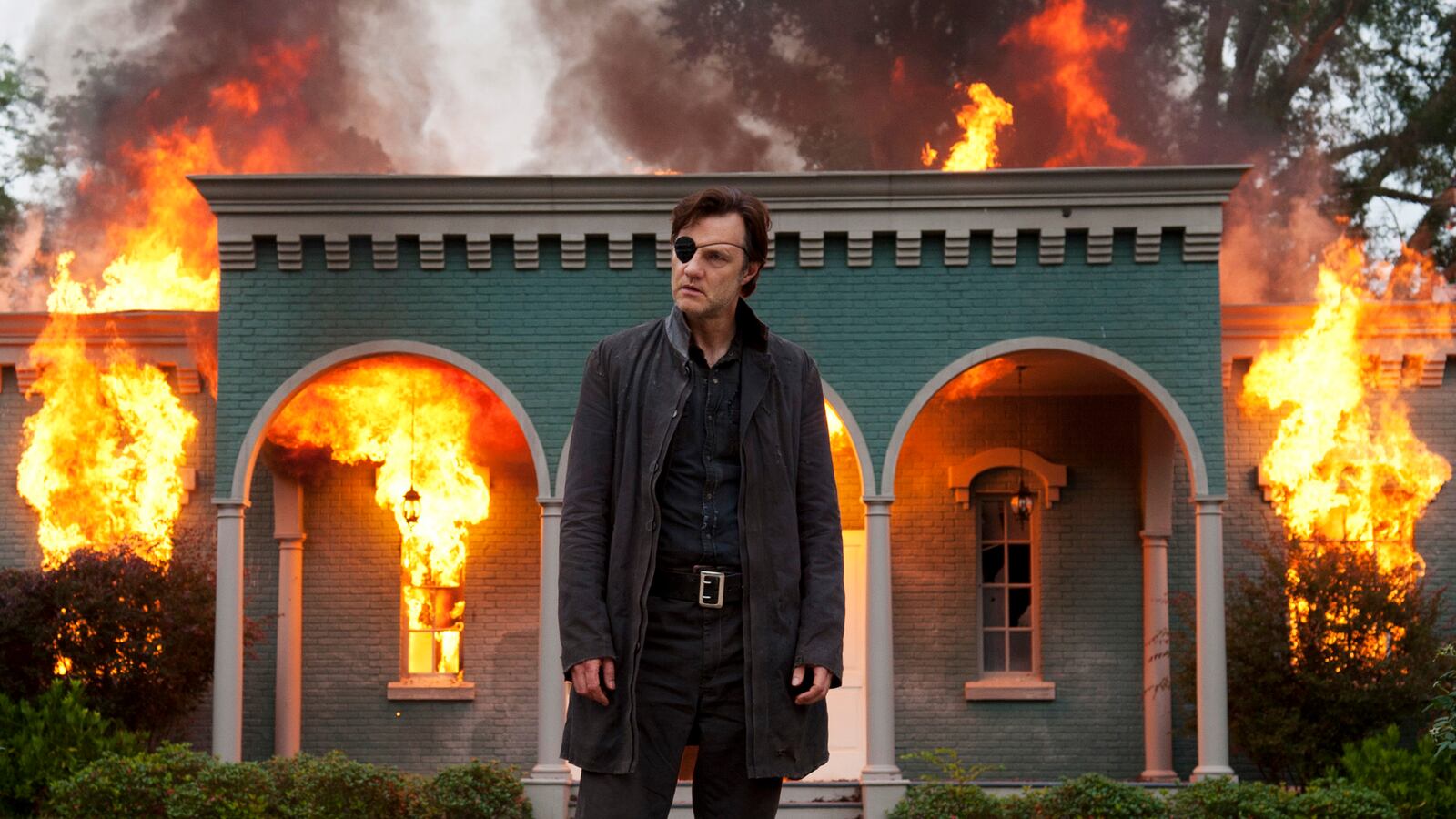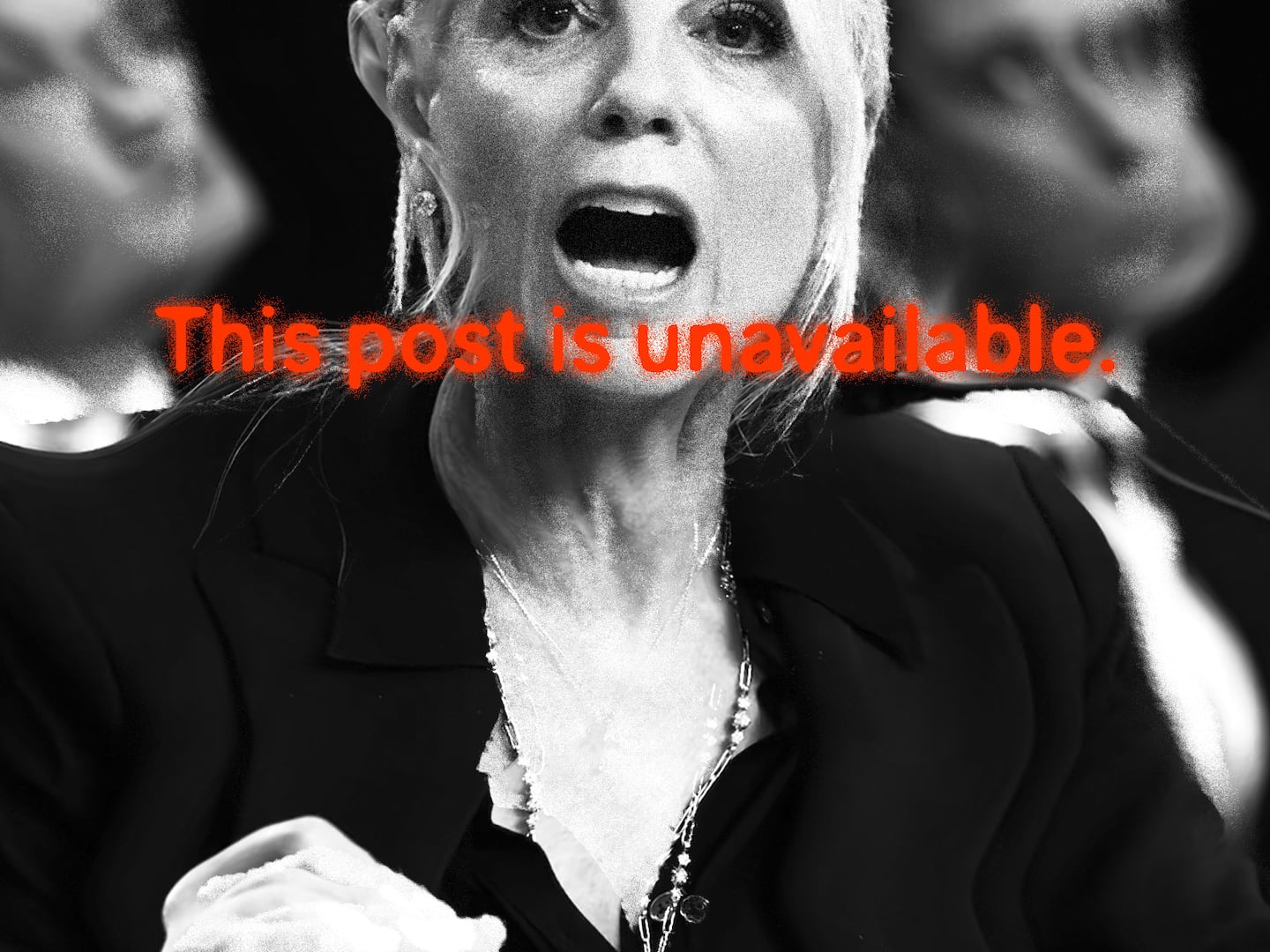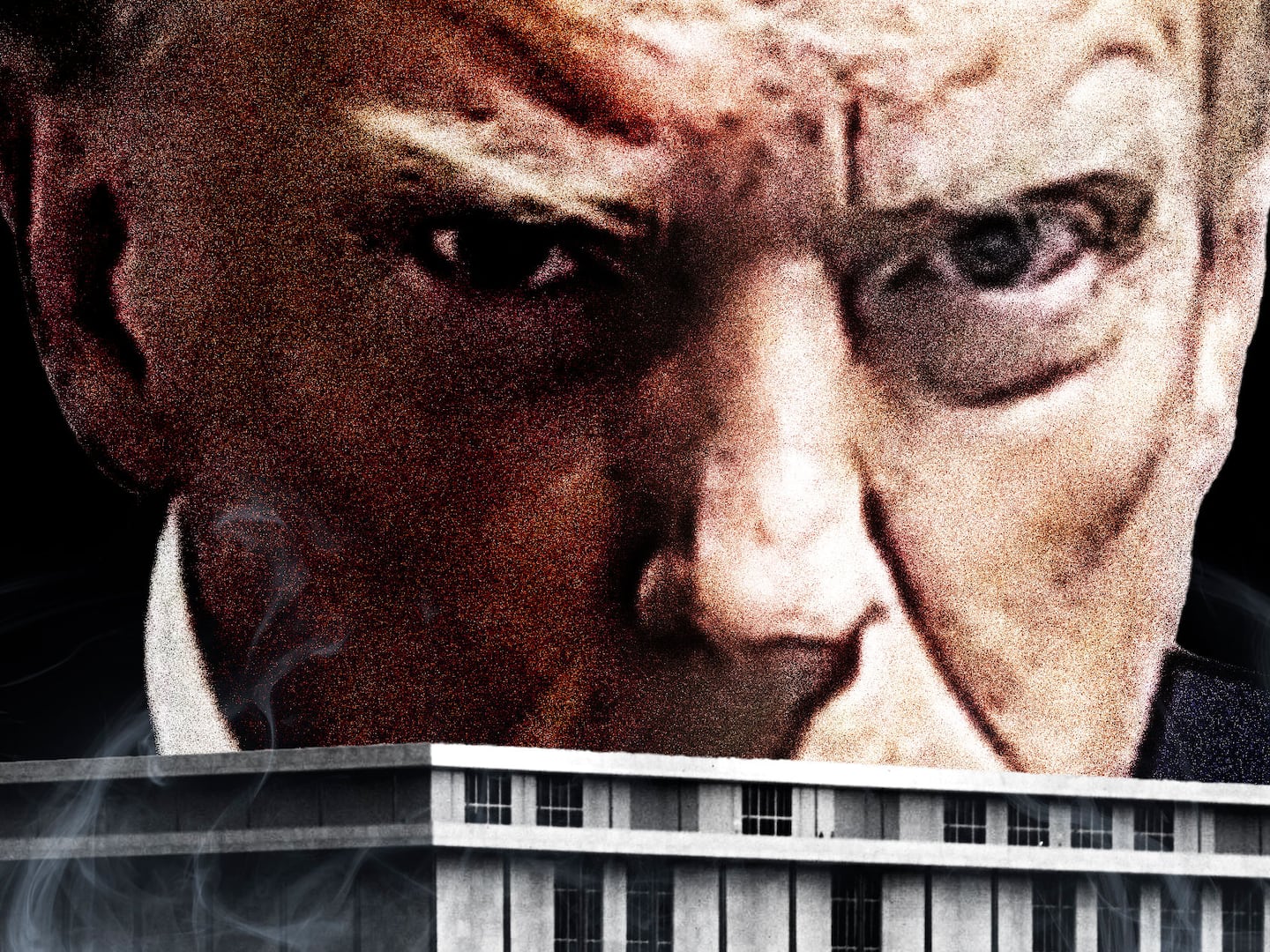The Governor is back! And he’s…nicer than ever?

In “Live Bait,” we get to see what The Walking Dead’s one-eyed villain has been up to since Season Three’s finale, when he shot down his own people and drove off with loyal lackeys Martinez and Shumpert. While Rick was off growing runner beans and raising piglets, the Governor was wandering around Georgia in a self-hating, half-suicidal daze. The deaths of Milton, Merle, and Andrea (not to mention the Woodburians and a few unlucky National Guard soldiers) weigh heavily on his mind—and for the first time, we see regret all over the Governor’s now gnarly-bearded face.
“He has shame, guilt, remorse and I think he’s deeply, deeply troubled about what he’s done,” says David Morrissey, who plays The Walking Dead baddie. Despite the Governor’s past, Morrissey says he believes his character can still go back to who he was before the apocalypse hit: devoted family man Philip Blake. “I believe in redemption for the human race. I’ve seen it happen,” he says. “There’s people who’ve done terrible things and whose lives have been completely devastated by their own actions, so I certainly believe in redemption with the Governor.”
The first signs of a return from the dark side come when the Governor encounters a family holed up in their apartment. Tara, a police cadet, her sisters Lily and little Megan, and their father cautiously welcome the Governor into their home and, before he knows it, he’s running dangerous errands for them and fighting to keep them alive. Megan clearly reminds him of Penny, the daughter he lost and kept locked away even after she turned into a zombie. Interacting with her brings him back to life, as does his newly hatched love for her older sister, Lily. But the Governor’s period of peace and happiness is much shorter than Farmer Rick’s, and it’s not long before he literally stumbles back into his past.
Morrissey chatted with The Daily Beast to discuss whether the Governor will team up with Carol, why he’s let go of his grudge against Rick and Michonne, and why the heck he tossed a perfectly good plate of SpaghettiOs out the window.
The Daily Beast: So in Sunday’s episode, we get to see where the Governor has been all this time—and he doesn’t seem like such a bad guy anymore. What changed?
Morrissey: At the end of Season Three, he did something which was really, really terrible, I mean turning on your own people and doing that is awful. But it wasn’t a premeditated act. It was something that happened spontaneously. So when we pick him up again in Season Four, at first we see him in a very dark place where he’s just catatonic. He just can’t move, he can’t function. Martinez and Shumpert leave him on his own because he’s no good to them—he’s a dead weight. He just wants to die. And just when we think he’s about to give up the ghost and die, he sees this vision, this little girl that reminds him of all that was good in his past life. That awakens something in him. This family and this young girl he meets give him a chance to reinvent himself.
Why do you think he puts himself in such great danger for this family he barely knows, when before he was capable of killing people he’d known for months and who depended on him as a leader?
Sometimes you don’t have a choice. I think when he sits in that bathroom and the little girl comes in, kids have a way of getting through social barriers. She just says to him, “How did you lose your eye?” And he turns around and says to her, “I’m a pirate.” He plays a game with her and she makes him laugh. And when he laughs, that’s humanity. That reminds him of what he’s lost with Penny. As soon as he starts being awakened in that way, then he’s a man that will have to go a hundred percent. He can’t do fifty percent on anything. Once he says, “I commit to you,” he’s gonna commit to them. He chooses these people over his own death.
What does the Governor have against SpaghettiOs?
(Laughs) What he has against the SpaghettiOs is that they’re a gift from someone else. He’s not worthy of a gift from someone else, but also he doesn’t want to be indebted to someone else. He feels that it’s a trap and he doesn’t want to accept it.
So he would rather eat…was it cat food?
It was tuna!
Oh, I thought it was cat food.
Well in the zombie apocalypse, I think you could eat most things. (Laughs)
There have been a few theories going around that Carol, who’s been exiled from the group, is going to join up with the Governor. Is that a possibility? What do you think that alliance would be like?
I can’t give you any specifics, but it’s a very, very good theory. The worst of enemies have found ways to work together for mutual benefit. So I think it would not be easy, but stranger alliances have happened throughout the world.
Lily ended up falling for the Governor the way Andrea did. What do you think it is about him that these women keep falling for? I mean, he’s very gentlemanly and all, but…
What are you trying to say?!
Uh, and good-looking!
(Laughs) Well, they are two very different women and they probably fall for him for very different reasons. Andrea didn’t want to fall for him. She was very resistant to that for a long time and the Governor had to sort of play this seductive game with her. But he presented a world to her which was a world of safety and security. A new world and a future. That’s a very potent, attractive thing for anyone to present to you. “If you stay with me, you can live.” That’s all in the mix for Andrea.
I think with Lily, it’s very different. Lily is someone who sees a very good man in the Governor, and she appeals to that good man. He is in a terribly vulnerable place. He needs help and affection and to be loved by someone else. She offers that. I think he’s resistant to it at first but he falls for her and I think it’s a very different love and relationship than what he has with Andrea.
Were his feelings for Andrea genuine?
I think what happened is he had real, genuine love for her but he was always living a lie with her. He knew that if this affair, this love was going to blossom with Andrea, he would have to keep things away from her. I think if you look at films like The Godfather, Michael Corleone is in love with Diane Keaton but he can’t tell her what he does on a daily basis, otherwise she wouldn’t love him. That element of keeping secrets, that’s the relationship he had with Andrea. That was his downfall, the fact that he was trying to present one character to her and he’s actually a different character. But I do think he had genuine feelings for her.
What does it mean when he burns the only photo of his family?
There’s two things, he folds the corner of the photograph and blocks himself out of it. And that’s blotting himself from his past and seeing only the goodness of it, which was his wife and his child. I think when he burns the photograph, it’s a commitment to his future, to Lily and Megan. In order for him to look forward, he can’t have any semblance of the Governor. He can’t have anything from his past. He has to commit totally to this new life.
Does he still hold grudges against Rick and Michonne?
I don’t think he does, no. I think he knows those grudges were born out of his own behavior. He sees his own part in all that. He’s not thinking about that at all and certainly where we are in episode six, he’s just thinking about these three people in front of him and how he’s gonna help them. He’s not thinking about revenge or getting back at Rick or Michonne.
Is that still the case when he shows up at the prison?
Well, I can’t tell you that but I think the important thing about when he shows up at the prison is not to preempt the reasons he’s there. At the end of episode five when we see him, lots of people were like, “Ohhh, he’s gonna go in there and destroy everybody!” But it’s a very complicated world and it’s a different man standing outside that prison than the one we saw at the end of Season Three.
Interactions between you and the other cast regulars are so tense on screen—what are they like when the camera’s not rolling? Are they scared of you or are you guys cool?
It’s an odd thing and a good question because really what happens is that, as a group of people, we’re so into what we’re doing that we do slightly mirror the dynamic that’s happening in front of the camera. It’s not that people don’t like me or whatever, but there is the sense that people keep their distance from me if we’re working. You know, you’re constantly in the story and in the mood. On weekends, you know, we all shower and put on nice clothes and go out and eat. But during the week when we’re filming, we do tend to sort of protect the space and protect the creativity.
It’s almost funny to see the Governor fall into his old walker pit at the end, like no matter what he’s just tried, he can’t escape his past.
Nope. And he has to fight, but he’s not fighting for his own life, he’s fighting for the life of the little girl. Then he sees Martinez. It’s literally his past catching up with him. There’s no escape for him and he’s got to confront that now. He’s presented to this little girl that he’s one person and his past is suddenly there. It’s gonna be very difficult.






